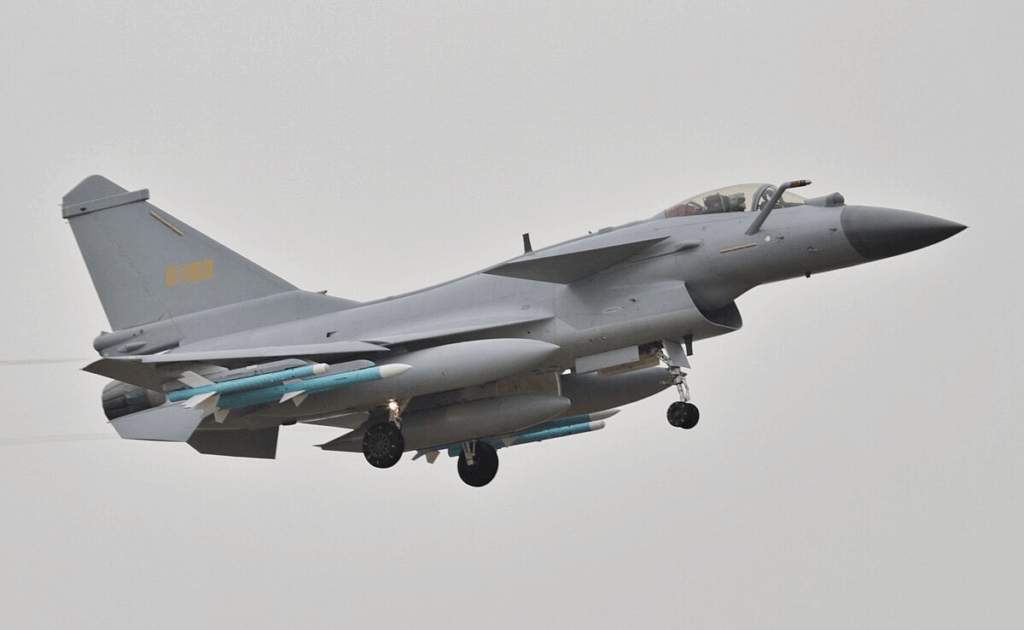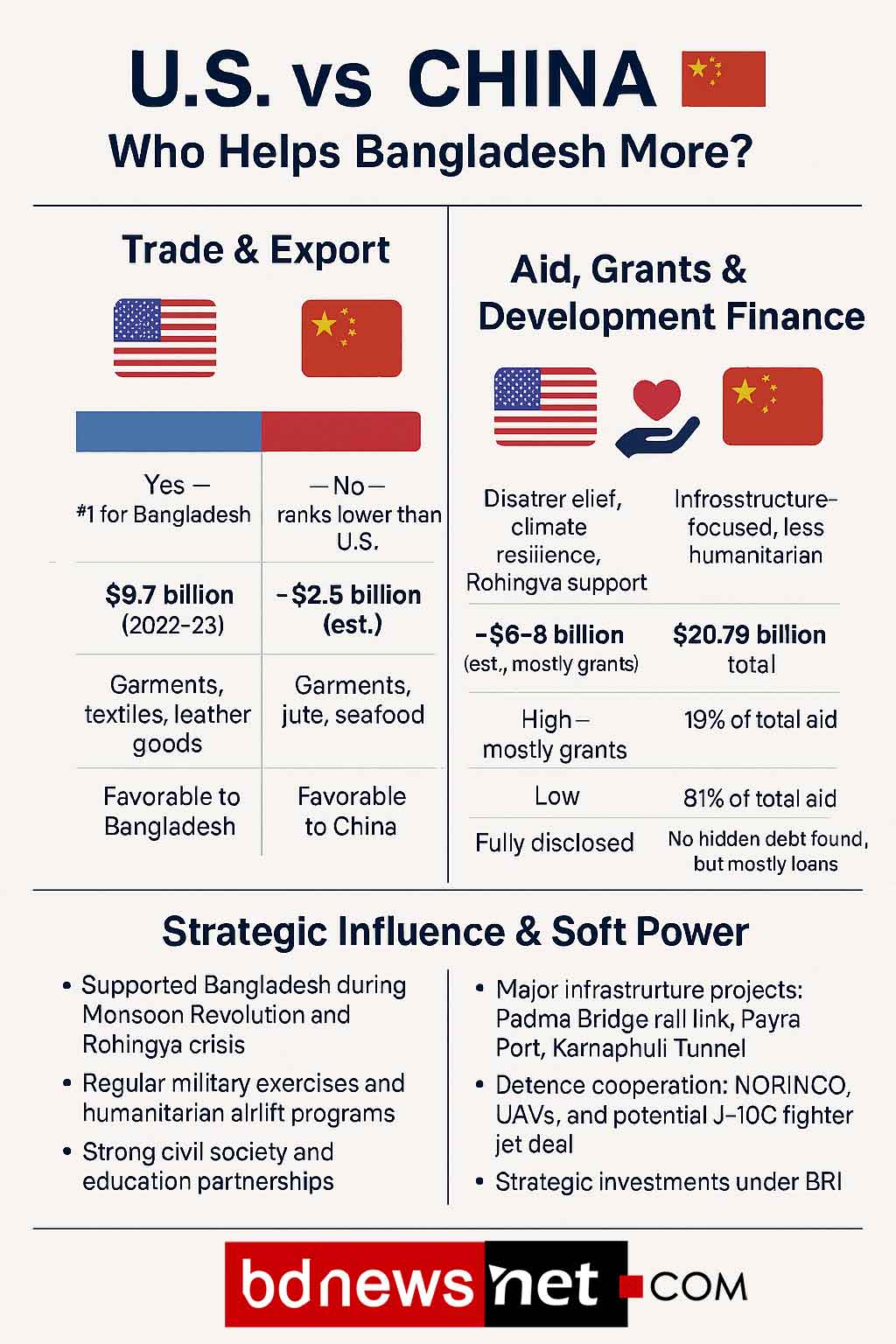Bangladesh is cautiously advancing talks to acquire a squadron of Chinese Chengdu J-10C “Vigorous Dragon” multirole fighter jets, signaling a major leap in its air combat capabilities—but also inviting scrutiny from Washington. The move reflects Dhaka’s urgent need to modernize its ageing fleet while navigating a complex web of geopolitical sensitivities.
While China’s investment volume is larger, much of it comes as loans tied to strategic infrastructure. The U.S., on the other hand, remains Bangladesh’s most important export partner and a trusted humanitarian ally. Any major defence or diplomatic shift—such as the J-10C fighter deal—must be weighed against the risk of straining U.S. relations, which could impact trade, aid, and long-term strategic balance.

🗣️ Opinion: Bangladesh Must Balance Defence Needs Without Alienating Trusted Allies Like the U.S.
As Bangladesh explores the acquisition of Chinese J-10C fighter jets to modernize its ageing air fleet, it must tread carefully—not just for operational efficiency, but for strategic diplomacy. While the need to replace outdated F-7s and prevent further aviation tragedies is urgent, the geopolitical consequences of deepening defence ties with China cannot be ignored.
The United States has long been one of Bangladesh’s most trusted development partners. From humanitarian aid to trade facilitation, Washington has contributed billions of dollars to Bangladesh’s growth. U.S. support during the Monsoon Revolution—when climate resilience and disaster response became national priorities—was instrumental in saving lives and building infrastructure. That legacy of partnership should not be jeopardized by short-term procurement decisions.
Yes, the J-10C offers speed, affordability, and advanced capabilities. But Bangladesh must ask: at what diplomatic cost? Defence deals are not just about jets—they’re signals of alignment. A sudden pivot toward Chinese platforms could strain U.S.–Bangladesh relations, potentially affecting trade, investment, and strategic cooperation.
Bangladesh’s strength lies in its balanced diplomacy. It must continue to modernize its military—but through a transparent, multi-vendor approach that keeps doors open to Western partners. A mixed fleet strategy, including limited Western acquisitions or joint training programs, could preserve strategic autonomy while avoiding unnecessary friction.
In a polarizing world, neutrality is power. Bangladesh must upgrade its air force—but not at the expense of long-standing friendships.
